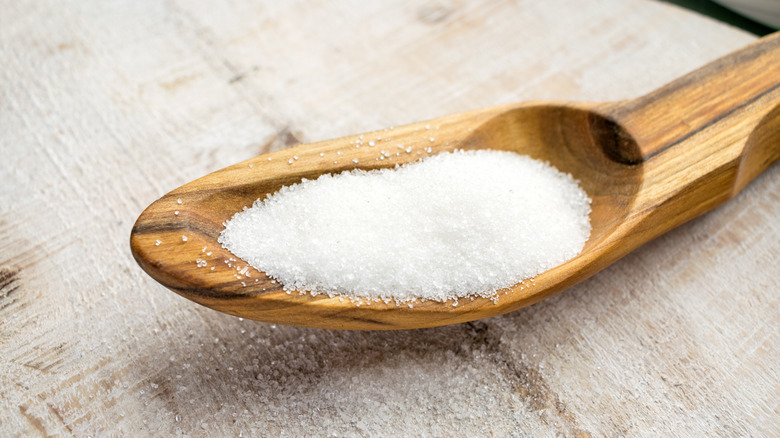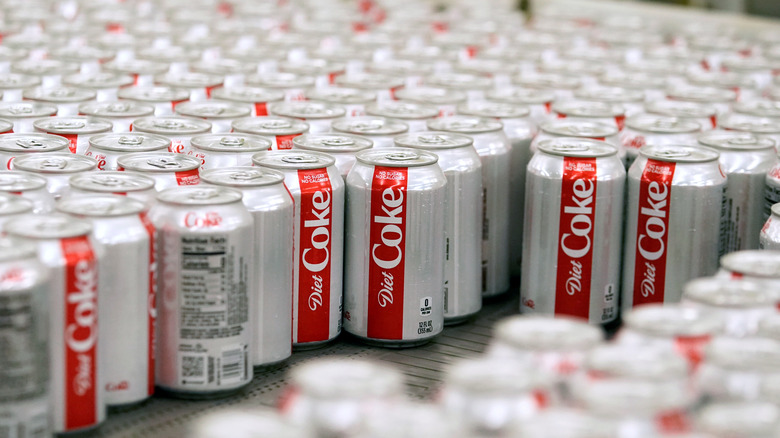How Aspartame Was Accidentally Invented
Whether or not you know what aspartame is, chances are you have drunk or consumed a product or two that contains it. This ubiquitous artificial sweetener is found in diet sodas and sugar-free substitutes. Picture those colorful packets of Equal or NutraSweet lining that bowl of your local diner — those are aspartame.
Aspartame, which is 200 times sweeter than sugar, is now commonly used as a low-calorie alternative to sugar in sweetening coffee, tea, sodas, or other items. Artificial sweeteners have often been magnets for controversy, and aspartame was no different. There was a protracted FDA review process leading up to its eventual approval in the early 1980s due to safety concerns over the product. According to Harvard University's "The History of Aspartame," the FDA even established a board in 1979 to investigate a series of potential risks the food additive might pose including causing brain damage or tumors.
While they concluded that aspartame didn't cause brain damage, the board couldn't rule out completely that aspartame may cause cancer and advised more research before granting approval. The FDA commissioner Arthur Hull Hayes Jr. overruled the board and approved aspartame on July 24, 1981, citing errors the board made in recommending further research.
Interestingly enough, aspartame's inventor didn't even originally set out to create a sugar substitute. He was searching for a medical treatment.
Aspartame was invented by mistake
Aspartame's discovery was an unintended consequence of a scientist named James Schlatter's attempt to develop an anti-ulcer drug in 1965. Depending on your view of aspartame, you might consider this discovery fortuitous or unfortunate.
Schlatter, a chemist for G.D. Searle & Company (now a subsidiary of Pfizer) was mixing two amino acids called aspartic acid and phenylalanine, when he stuck his finger in the experimental concoction and licked his finger. Perhaps not the brightest of moments for a scientist treading uncharted territory, but in hindsight, his lapse ultimately paid off when he realized the substance tasted sweet (and it didn't harm him). The result led to the accidental invention of aspartame, which in 1969 was referred to in the Journal of the American Chemical Society as a sweetener.
After the FDA commissioner approved aspartame for commercial use as a sweetening agent in 1981, it was later marketed and distributed under the more familiar brand names including Equal and NutraSweet. Aspartame was initially approved as a tabletop sugar substitute, tablet, and additive in cereal, drink mixes, and other products. By July 1983, the FDA had greenlighted its use in soft drinks.

